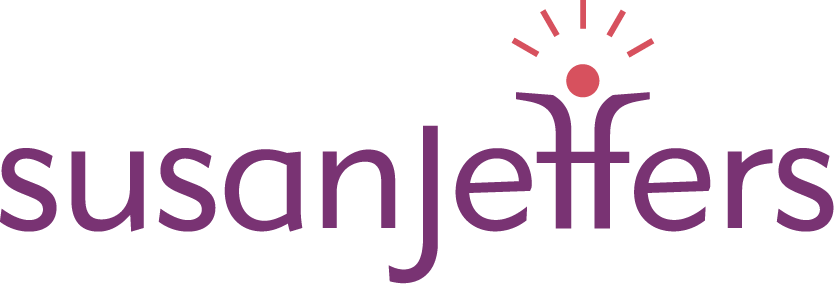This month we’re talking about Susan’s lesson in Feel the Fear and Do It Anyway about Pain-to-Power Vocabulary. Our word choices can make a huge difference to our attitudes. Even in dire situations, such as illness, choosing the right words can help you orient yourself towards healing. Susan experienced this first hand:
While you might feel more justified in saying “It’s terrible” if a loved one has cancer, keep in mind that this attitude takes away your power to deal with the situation. There are many who have learned important things from the experience. I know, because I am one of those people.
My experience of cancer taught me many wonderful things about myself and the people around me. Most important, I learned how much I was loved. I saw a tender side of my fiancé, now my husband, that I had never seen before, and our love deepened immeasurably. We stopped taking each other for granted. Also, I have changed my life in many positive ways. I’ve become a much more aware eater. I’ve learned how to eliminate the anger, resentment, and stress that was very much a part of my daily life prior to my illness. My cancer experience has given my husband and me an opportunity to contribute something to this world. I wrote a very positive article about my mastectomy, which I know has been of value to many men and women. My husband and I have appeared on television together to relate our experience, bringing reassurance to viewers. So you see, cancer can be a great learning experience and an opportunity to give.
You get the picture. Begin eliminating the terribles, can’ts, problems, struggles, and so on from your vocabulary. Maybe these semantic differences seem trivial, but I assure you, they are not. Not only does your sense of yourself change with a more powerful vocabulary, so also does your presence in the world. People who display an inner strength are treated differently from those who come across as weak. The more powerfully you speak, the more you will be a force in the world around you.
